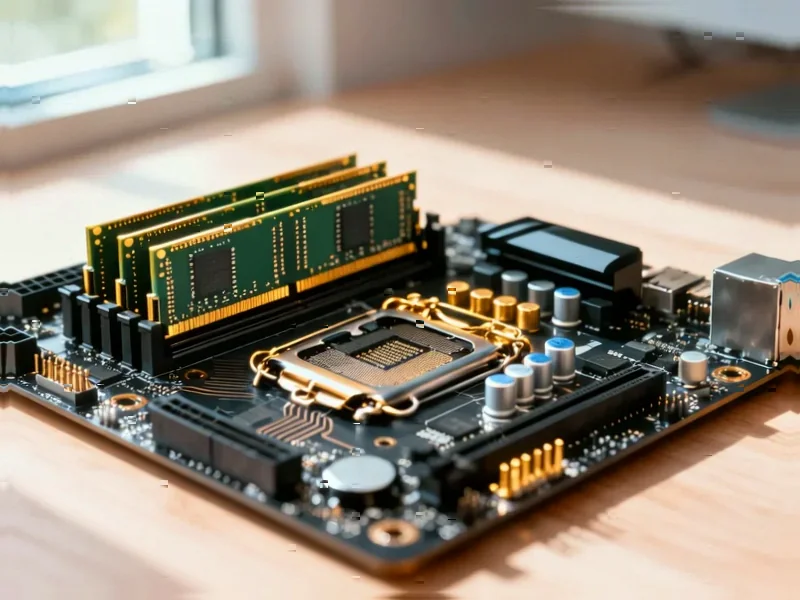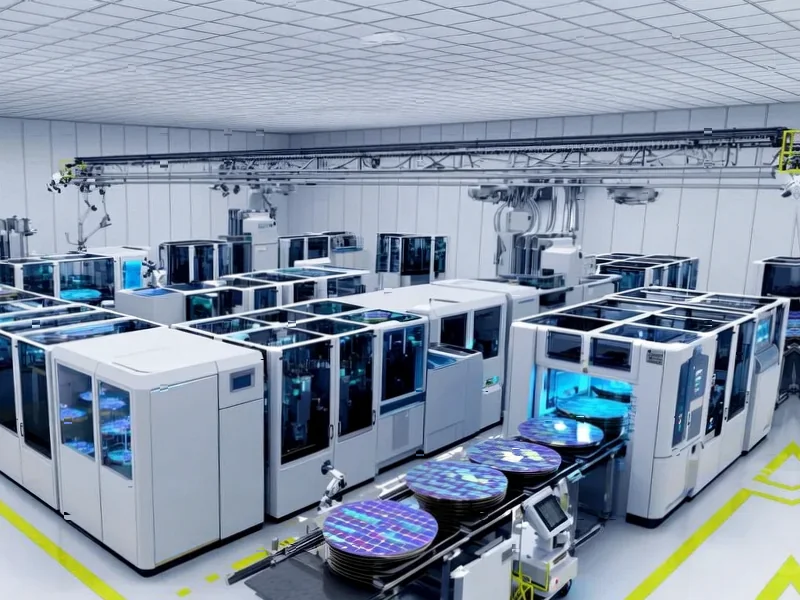According to Wccftech, Chinese PC case manufacturer Abee has launched its first mini PC called the AI Station 395 Max with a price tag of $2,524. The cube-shaped device measures 199x199x199mm and features a water-cooling system for thermal management. It’s powered by AMD’s flagship Ryzen AI Max+ 395 processor with 16 cores and 32 threads based on Zen 5 architecture. The mini PC comes with an enormous 128 GB of LPDDR5X memory running at 8000 MT/s and includes 2 TB of SSD storage with expansion slots available. For connectivity, it offers dual LAN ports including 2.5G and 10G options plus multiple USB4 Type C and Type A ports. The system uses a built-in 400W power supply with a 10-pin ATX12VO design that Abee claims reduces idle power consumption by up to 27% compared to traditional designs.
Market positioning
Here’s the thing – Abee is making a pretty bold move here. They’re traditionally a case and cooling company, and now they’re jumping into the mini PC space with what’s essentially a no-compromise workstation. At $2,524, this isn’t your typical mini PC that competes with Intel NUCs or consumer-grade devices. They’re clearly targeting the prosumer and AI developer market who need serious memory bandwidth without the bulk of a full tower.
And honestly? The 128GB of RAM is absolutely overkill for 99% of users. But for AI workloads and memory-intensive operations, that kind of capacity in a mini PC form factor is actually pretty compelling. Most mini PCs top out at 32GB or maybe 64GB if you’re lucky. Abee is basically saying “why choose between compact and powerful when you can have both?”
<h2 id="cooling-innovation“>Cooling innovation
The water cooling aspect is particularly interesting coming from a case manufacturer. Abee knows thermal management better than most, and they’re applying that expertise to solve the classic mini PC problem: how do you cool a 16-core processor in a 200mm cube? Traditional mini PCs often throttle under sustained loads, but water cooling could genuinely change that equation.
Now, water cooling in a mini PC does raise some questions about long-term reliability and maintenance. But if they’ve engineered it properly, this could set a new standard for what’s possible in compact computing. It’s a risk, but one that might pay off if they can demonstrate stable performance during extended AI training sessions.
Competitive landscape
So who should be worried about this? Well, established mini PC players like Minisforum and Beelink might need to take notice, though their focus has been more on the consumer and gaming markets. The bigger impact might be on workstation manufacturers who typically charge much more for systems with similar memory configurations.
Basically, Abee is carving out a very specific niche. They’re not trying to be everything to everyone – they’re building for power users who need maximum performance in minimum space. And with their background in PC case design, they might just have the engineering chops to pull it off. The question is whether there are enough buyers willing to drop $2,500 on a mini PC, even one this powerful.





Thank you for your sharing. I am worried that I lack creative ideas. It is your article that makes me full of hope. Thank you. But, I have a question, can you help me?